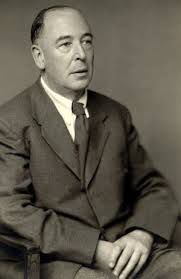One would almost have to look in the Old Testament to find another non-Catholic figure who had more influence on Catholics than C.S. Lewis.
In some ways, C.S. Lewis was like an Old Testament figure, someone from the Book of Exodus. Like Moses, C.S. Lewis, despite leading throngs out of the wilderness and into the bosom of the Church, did not enter the Promised Land himself.
Was it something J.R.R. Tolkien, his dear friend and a Catholic, said? I always wondered what it must have been like to sit at one of those tables at the Eagle and Child pub where Tolkien and Lewis, and several other literary types, gathered to critique what they had been tinkering on while they carried on their “day jobs” as Oxford dons. Known as the “inklings,” this group was the first to hear about “Lord of the Rings” and “The Chronicles of Narnia.”
Actually it might have been something Tolkien said, as he apparently was unimpressed by Lewis’ tales about eccentric bedroom furniture. Tolkien, as anyone who has read “Lord of the Rings” can attest, liked his theology carefully blanketed in multi-layered characterizations immersed in myth. Lewis wore his theology more on his sleeve, which might explain how “The Chronicles of Narnia” came to be much more associated with young people’s literature and “Lord of the Rings” covers a wider demographic base. Let’s face it. Even I got who Aslan represented on my first go around.
Tolkien’s fiction dwarfs Lewis’ efforts in the realm of fantasy fiction, but Lewis is in good company when it comes to artists who were overshadowed by contemporaries. Not to risk my father prematurely rising from his grave, but look at the Beatles and how George Harrison, not a bad song writer in his own right, was completely overshadowed for years by the egos and talents of John Lennon and Paul McCartney.
And the late playwright Peter Shaffer turned the factual elements of a gifted, but not overly ambitious, court musician who found himself engulfed and washed away by the impetuous and ridiculously talented Wolfgang Amadeus Mozart, into a theatrical investigation of envy and genius. Even in death C.S. Lewis found himself overshadowed as he passed away on one side of the Atlantic Nov. 22, 1963 — the day President John F. Kennedy was assassinated — when the population on the other side of the Atlantic was preoccupied by bigger history.
But there is one facet where C.S. Lewis takes a back seat to no one — leading others into the Church. Two notables on this list in particular, Walker Percy and Peter Kreeft, have used their talents and gifts for communication, to pay Lewis’ ultimate gift forward to countless others in an exponential “Richter” conversion table.
Like the rest of us, Percy could not figure out why Lewis himself could not take the last steps and, like others, attributed it to Lewis’ rock rib Belfast protestant DNA. How else to understand a man who believed in purgatory, the real presence and the nature of the priesthood in complete fidelity to Rome, yet was not able or willing to go all in?
When reminiscing on this point, Percy wrote about how the usual suspects of St. Thomas Aquinas and Thomas Merton had their fair share of convert notches on their belts, but how Lewis, despite his own hesitation, outshone them all. “C.S. Lewis who, if he didn’t make it all the way, certainly handed over a goodly crew.”
Peter Kreeft, no slouch himself when it comes to inspiring people to seek their answers within the arms of the Church, credited his own journey to Lewis’ magnum opus, “Mere Christianity,” which, Kreeft believes, “probably accounts for more conversions than any other book in the century.”
So even if he was the “quiet” don to Catholic Tolkien’s comic-con superstardom, Lewis, the protestant, continues to inspire people toward the truth in the Mother Church. Years before Vatican II, Pope Pius IX more than hinted the fate of a man like C.S. Lewis “if they [non-Catholics] carefully keep the precepts of the natural law, which have been written by God in the hearts of all men, if they are prepared to obey God, and if they lead a virtuous and dutiful life, can, by the power of divine light and grace, attain eternal life.”
Amen.
Robert Brennan has been a professional writer for more than 30 years, including many years in the television industry.

